Neurological Surgery
The Neurological Surgery Residency Program at Atrium Health Carolinas Medical Center (CMC) is a subspecialty-based program designed to train skilled, compassionate neurological surgeons. Our residents aspire to assume national leadership roles in clinical innovation, medical education and neuroscience research. In addition, approximately 3,500 operative neurosurgical procedures are performed each year at CMC while an additional 1,700 neurosurgical cases are performed at the adjacent Carolina Center for Specialty Surgery.
In the program, residents will have access to cutting-edge clinical and surgical facilities, including:
- Intraoperative imaging
- Newly built neurocritical care units
- An inpatient neurosurgery ward
- Neurosurgery clinics
- A pediatric surgery specialty ward
Where You Will Train
-
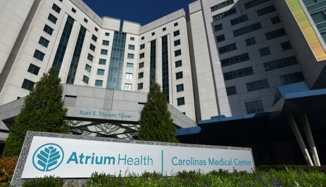
Inpatient Training at Carolinas Medical Center (CMC)
Atrium Health Carolinas Medical Center (CMC) runs a dedicated 32-bed neurosurgical unit, a 22-bed neurosurgical step-down unit, a four-bed neuro-monitoring unit, 14-bed pediatric intensive care unit (ICU) and a 28-bed neurological services ICU. Dedicated operating rooms (ORs) include five neurosurgical inpatient and two neurosurgical outpatient ORs as well as a bi-planar neuro-angiography suite.
Learn more -
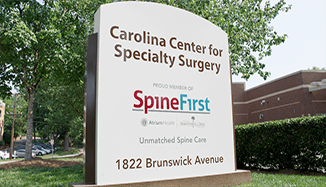
Outpatient Training at Carolina Center for Specialty Surgery
Carolina Center for Specialty Surgery is an outpatient surgery center performing a high volume of minimally invasive neurosurgery procedures each year.
Learn more -
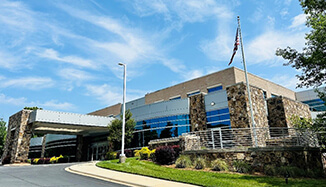
Outpatient Training at Carolina Neurosurgery & Spine Associates
Carolina Neurosurgery & Spine Associates, established in 1940, is home to the neurosurgical faculty members of the Neurological Surgery Residency training program at Carolinas Medical Center. Fellowship-trained neurosurgeons in the areas of pediatric neurosurgery, complex spine surgery, minimally invasive spine surgery, neurovascular surgery, and pituitary and skull base surgery are part of the neurosurgical team. The practice has been instrumental in developing and implementing minimally invasive and complex brain and spine procedures. Ongoing research through participation in innovative clinical trials is a focus of the practice.
Learn more
What Residents and Graduates are Saying About the Neurological Surgery Program
-
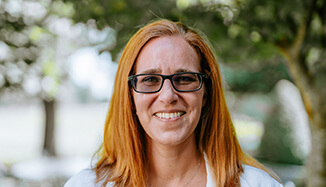
“I am looking forward to spending my PGY-6 year in Australia. I will be working with several leaders in the fields of robotic spine surgery, endoscopic spine techniques, disc arthroplasty and anterior and lateral approaches to the spine. I am excited to see how the medical field differs in another country and learn the techniques of surgeons outside of my home program. Dr. Coric and Dr. Kim are two of our well-known, nationally and internationally connected spine attendings who have been to help make this fellowship possible. Their willingness to reach out to colleagues and help arrange opportunities like this for residents also demonstrates another tremendous strength of our program.”
Rebecca DeCarlo, MD
PGY-6 -
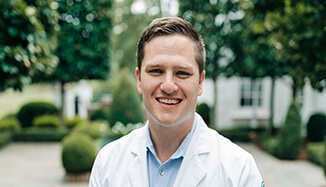
“The clinical experience at Carolinas Medical Center and Carolina Neurosurgery and Spine Associates is second to none. As a junior resident, I participated in a large volume of complex spine cases. This sparked my interest in spinal pathology and treatment. The residency makes you a fantastic technician and prudent physician.”
Vincent Rossi, MD
2023 Graduate -
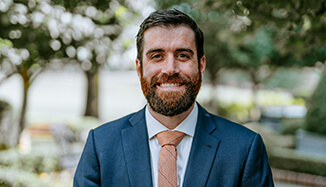
“I really enjoyed the culture of the program. Our attendings have a tremendous amount of experience and accomplishments, yet remain down to earth, approachable, fun to work with and committed to the success of the residency program. Likewise, my co-residents are a small but fantastic group that have taught me a lot and been very fun to be around. I have also learned a lot from the mid-level providers, who have been very friendly, helpful and great to work with. I could not be any happier with the training program at CMC.”
David Peters, MD
2024 Graduate
Meet the Faculty

“Eight years ago, Atrium Health and Carolina Neurosurgery and Spine Associates (CNSA) teamed to develop one of the premier neurosurgery residency training programs in the nation. Our residents receive unparalleled clinical training largely at Carolinas Medical Center, Carolina Center for Specialty Surgery, and the offices of CNSA. Atrium and CNSA are among the largest, most highly regarded healthcare institutions and neurosurgery groups, respectively, in the country. We invite you to find out more about our elect group of residents, who represent the top young talent in neurosurgery in the country, and we look forward to continuing to recruit dynamic, diverse medical students who will be world class clinicians and investigators.”
Scott Wait, MD
Program Director
With a nationally and internationally renowned team of neurological surgery physicians who serve as faculty, our residents have access to a breadth of experience and knowledge in the Neurological Surgery program. View their bios here.
Program Curriculum
Residents will receive extensive clinical experience and have access to state-of-the-art neurological technology and resources within the program. At Carolina Center for Specialty Surgery, our outpatient surgery center, residents will train in the following procedures, among others:
- Spinal injections
- Anterior cervical discectomy
- Arthrodesis and arthroplasty
- Posterior cervical decompression and discectomy
- Lumbar discectomy
- Thoracic decompression and discectomy
- Peripheral nerve decompression
- Shunt/pump and stimulator insertion
- Spinal endoscopic surgery
- Kyphoplasty
- Vertebroplasty
During the outpatient portion of the program, residents will participate in clinics as assigned with their supervising physician throughout their training. They will complete this aspect of their studies at Carolina Neurosurgery & Spine Associates, where they will:
- Work side by side with fellowship-trained neurosurgeons in the areas of pediatric neurosurgery, complex spine surgery, minimally invasive spine surgery, neurovascular surgery, and pituitary and skull base surgery are part of the neurosurgical team.
- Immerses themselves in the program’s instrumental practice of developing and implementing minimally invasive and complex brain and spine procedures.
- Learn more about how ongoing research through participation in innovative clinical trials is a focus of the practice.
Additional information on the clinical experience in this program can be found here.
Resident Rotation Schedule
Residents will have a specific rotation from residency years PGY-1 through PGY-7.
Learn moreApplication Criteria
To apply for the program, 3 letters of recommendation are required in addition to the dean’s letter. One of these letters should be from your medical school’s chairperson or designee of the Department of Neurological Surgery. If you would like to apply for our residency program, we only accept standard electronic applications through the Electronic Residency Application Service (ERAS). Please submit your ERAS application to us. Please contact your school for specific information on the ERAS program.
